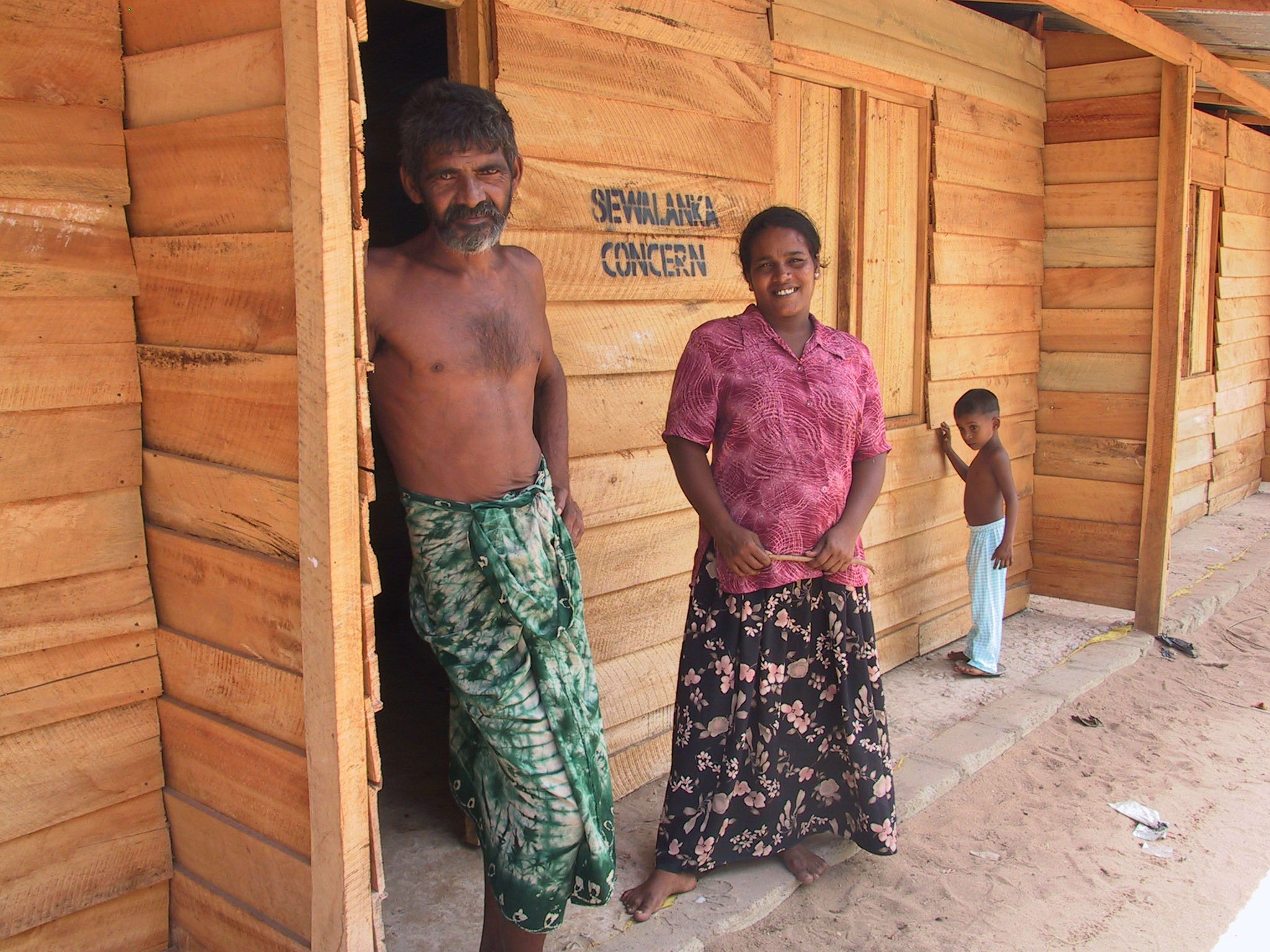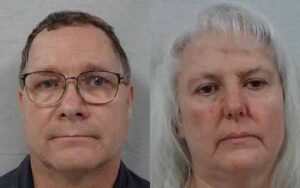
EDITORS’ NOTE: Nine months after the massive Asian tsunami killed up to 250,000 people, Southern Baptists continue relief and rebuilding efforts. Missionary writer Goldie Frances (name changed for security reasons), who covered the tsunami’s immediate aftermath in Sri Lanka, recently returned to the south Asian island nation to survey ongoing aid ministries there.
COLOMBO, Sri Lanka (BP)–The tsunami that roared ashore last Dec. 26 invaded the lives of millions of south Asians — stealing loved ones, scarring hearts, destroying homes and communities.
Nine months later, the television cameras are gone, but the hurt isn’t. Empty arms and miles of rubble linger to keep the pain fresh.
“Every morning they wake up to that reminder,” said Ned Thaxton*, a volunteer working in tsunami relief through the Southern Baptist International Mission Board.
The tsunami, set off by a massive earthquake on the ocean floor near the Indonesian island of Sumatra, affected many nations — including the south Asian countries of India, Sri Lanka and the Maldives. Governments, relief agencies and local residents have been working steadily ever since to help the survivors, but the cleanup task alone remains daunting.
“I thought things were further along than they are,” one volunteer said during a recent trip to Sri Lanka. “For as long as it has been, it’s still in worse shape than I thought it was.”
But some Sri Lankan tsunami survivors have captured a glimmer of renewed hope as they get back to work and move into new houses. Southern Baptists have something to do with that: To date, they’ve contributed more than $16.6 million in tsunami aid through the International Mission Board’s disaster relief fund. Numerous missionaries temporarily relocated to affected areas and hundreds of short-term volunteers have joined them to help rebuild and minister to the hurting.
“I’m seeing a change in demeanor as the people move in their houses,” said Riley Delk*, who has overseen the construction of several houses provided for tsunami survivors by Southern Baptist aid. “It makes a significant difference. They’re smiling a little bit — and they’re decorating.”
Still, only a small percentage of the south Asians who lost homes in the tsunami have new ones. Many survivors remain in tents pitched in camps for displaced persons, huddle between buildings in business districts or sleep amid the rubble of what once were their homes. Others live in temporary housing, which usually consists of a small wooden frame covered by a corrugated tin roof. The houses often are too small for the families in them — and always too hot to endure in the daytime.
“The very first family we talked to was telling us that we were the first people to come there to even ask them anything,” said Bobbie Caldwell, a Southern Baptist volunteer from South Carolina. “They’ve been through so much, and they have two families — 10 people — living in one of these little row houses.”
Caldwell, an International Mission Board trustee, joined other South Carolina volunteers as they surveyed needs and ministered in other ways in Sri Lanka.
“I compare it to when [Hurricane] Hugo hit Charleston, multiplied about 10 times,” she said. “It is just overwhelming. I cannot imagine the force of the water coming in — and the fear.”
It is fear that still plagues tsunami survivors more than lack of jobs or inadequate housing.
“Yesterday, two helicopters [were] going [over], and I feel disaster,” said Priyani, a Sri Lankan woman. “I am always very scared when I hear the sound.”
It reminds her of the choppers that flew over in the terror-filled days after the big wave hit, searching for the living and the dead.
Priyani and her sisters live near the beach. They want to move inland where they will feel safer, but their brother is a tourist guide — and tourists like the beach. He doesn’t want to move. Instead, he bought them a television so they can watch for tsunami warnings.
Many south Asians share her fear. Occasional tsunami warnings send people scampering for higher ground.
While on temporary assignment in a tsunami-affected area, IMB missionary physician Doris Austen developed a brochure for local people called “Fear and the Future.” It explains what causes tsunamis and how specialists predict them.
“Scientists try to estimate the risk of an earthquake,” the brochure states. “But no one can say exactly when and where an earthquake will occur. So, if someone on the street tells you that an earthquake and a tsunami are coming … next week or next month, they don’t know what they are talking about! It is wrong to cause panic by telling others something that is not true.”
Fear is difficult to snuff out of hearts and minds that have yet to heal, however. And healing will take much longer than cleaning up debris and rebuilding houses — especially for those who remain reluctant to talk about the deep pain their loss has brought.
Babynona, 58, lost her husband and two children when the tsunami hit Sri Lanka’s western coast. When Tennessee Baptist volunteers approached her temporary wooden house, Babynona answered all their practical questions about housing and income. When the questions moved to a more personal level, however, only tears came.
“She says she cannot talk about it,” a translator explained to the volunteers.
Ramesh, another Sri Lankan, lost his entire family. They perished with about 1,500 others on a train traveling from Colombo, Sri Lanka’s capital, to coastal Galle. His family members had come to Colombo for a party Dec. 25 and were returning home when the tsunami ripped the train from its tracks. Ramesh, 23, works in Colombo and had stayed behind.
“My uncles, aunts, my family are dead,” he said. “At the moment, I feel I am a little confused. Sometimes when I am alone, I think about them. I am a Christian, and I’m believing in my God, and that [this] is God’s will. No, I can’t talk. I don’t want….” His voice breaks and falls silent.
It may take many more months and even years, but new houses eventually will replace the destroyed ones. Businesses will be rebuilt and new ones started. As for south Asian hearts, the pain may one day subside, but the scars will always be there. Life for people like Priyani, Babynona and Ramesh never again will be the same.
The only hope south Asians truly have is to meet the merciful God who heals and restores.
“I don’t think it is coincidence that for the last year or more the International Mission Board has put a special emphasis on south Asia,” Caldwell said. “I don’t think it’s a coincidence that South Carolina Baptists entered into a three-year partnership with south Asia. And then what happens? A tsunami comes. God threw the hinges off the door for us.”
–30–
*Name changed for security reasons.














